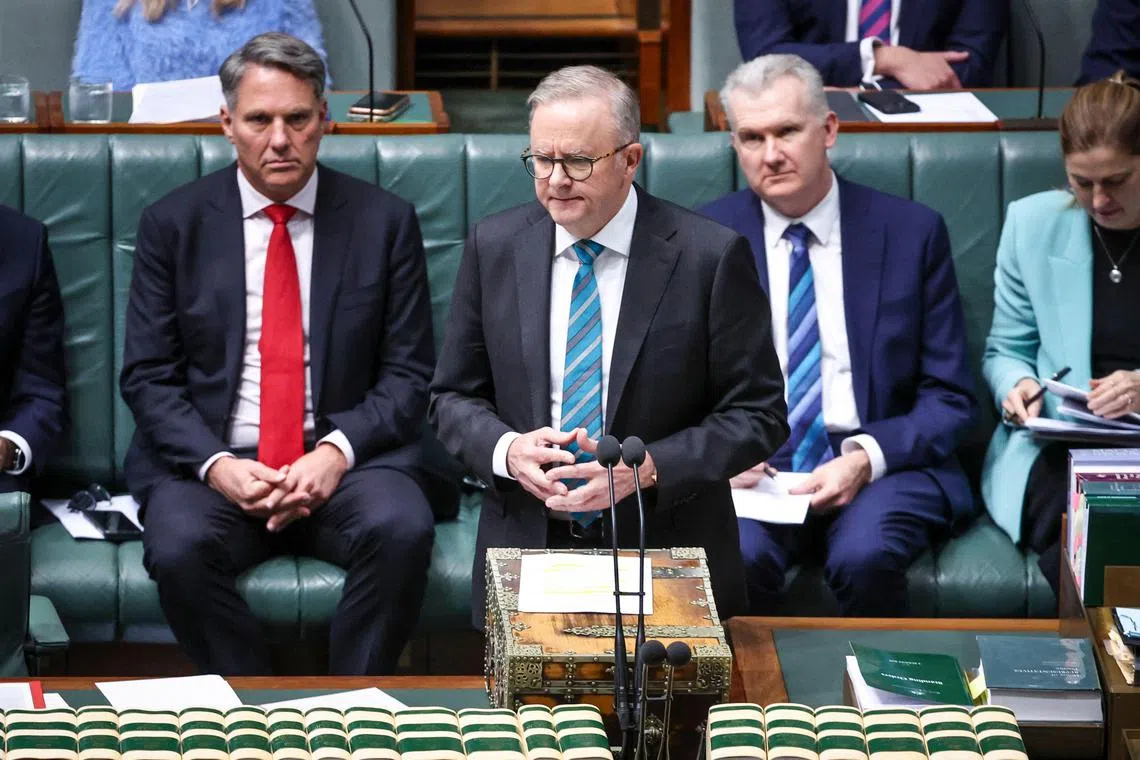Australia appoints top official to combat anti-Semitism
Sign up now: Get insights on Asia's fast-moving developments

Australian PM Anthony Albanese (centre) said the naming of the anti-Semitism special envoy was a “critical step” to easing tensions in Australia as a result of the Middle East fighting.
PHOTO: AFP
SYDNEY - Australia’s Prime Minister appointed a special envoy to tackle anti-Semitism in the country on July 9, urging his compatriots to avoid being “torn apart” by tensions over the war in Gaza.
An envoy on Islamophobia will also be named “shortly”, Mr Anthony Albanese said.
As in many countries, Palestinian supporters in Australia have held street rallies and university protests against the war between Hamas and Israel, with some slogans sparking concern of a rise in extremism and anti-Semitism.
“There is no place for violence or hatred of any kind in Australia,” Mr Albanese said.
The naming of the anti-Semitism special envoy, Ms Jillian Segal, was a “critical step” to easing tensions in Australia as a result of the Middle East fighting, he said.
“Australians are deeply concerned about this conflict, and many are hurting. In times like this, Australians must come together, not be torn apart.”
The Australian leader told reporters in Sydney that the government would soon announce an envoy on Islamophobia, adding: “That will be important as well, working with that community to promote social cohesion.”
Mr Albanese’s centre-left Labor Party has itself been split over how to respond to the conflict.
One Labor senator quit the party
The Senate motion did not mention that recognition should be part of a peace process in support of a two-state solution, which the government had insisted on.
The Gaza conflict erupted with Palestinian militant group Hamas’ Oct 7 attack on southern Israel
The militants seized 251 hostages, 116 of whom remain in Gaza, including 42 the military says are dead.
Israel responded with a military offensive that has killed at least 38,193 people in Gaza, also mostly civilians, according to data from the territory’s Health Ministry. AFP


